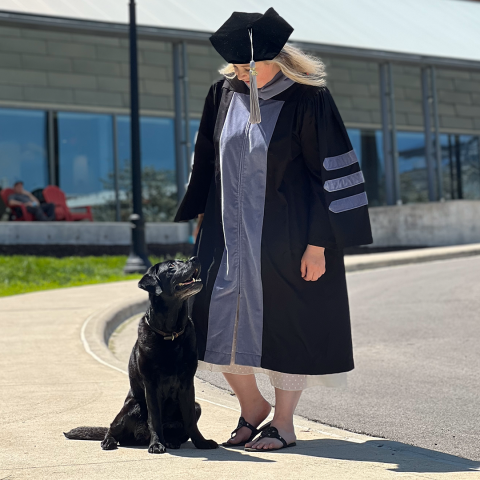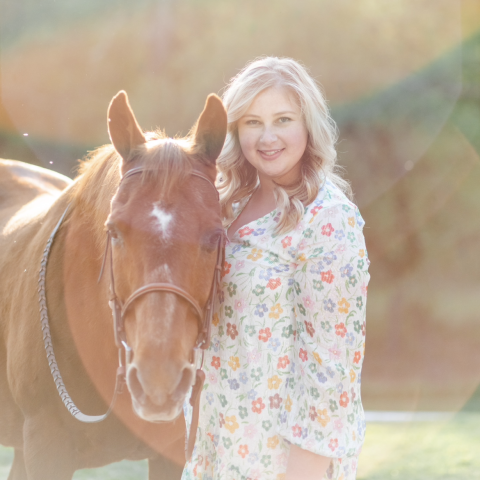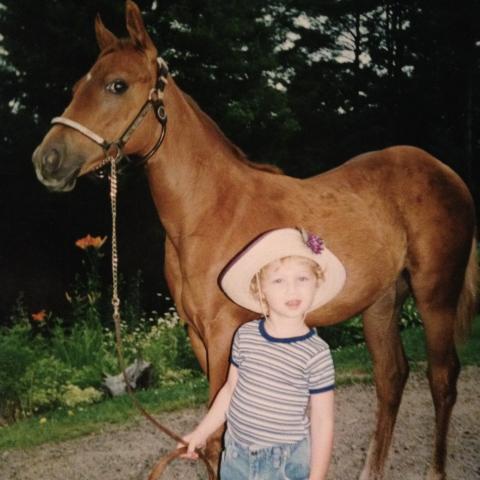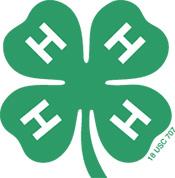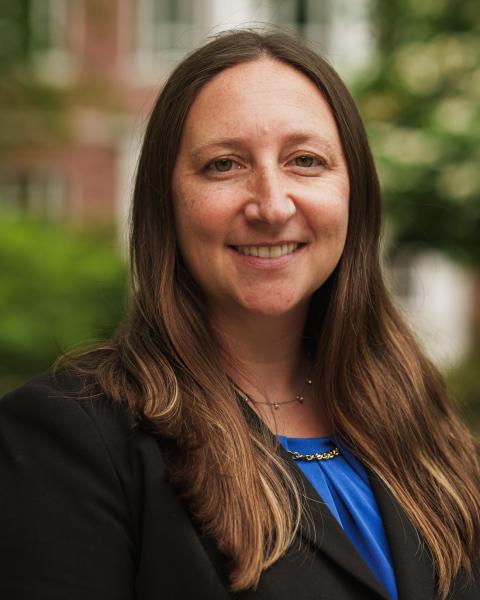Head, Heart, Hands, Health
“I announced at my preschool graduation that I wanted to become a pony doctor,” says Dr. Megan Ballou, who, turns out, did exactly that.
Ballou’s mom was a 4-H’er and served as a club leader in Cheshire County, so Ballou joined 4-H as a Cloverbud at age six and spent her childhood enthralled with horses, especially her mare, Holly.
“You create this partnership with this horse, put time and effort into caring for them…Then you start to obtain goals, you get hooked on it and continue to see opportunities to your partnership,” she says.
As Ballou got older, she participated in lots of 4-H equine events within the County, at the state level and regionally at The Big E fair in Massachusetts. She volunteered, took on leadership roles and pursued public speaking opportunities, all while making close friends.
Through 4-H she discovered a hard work ethic was necessary to succeed. She needed to demonstrate a strong working relationship with Holly. She also needed to care for Holly.
Helping Horses, Helping People
Ballou now takes care of horses professionally, working in equine internal medicine at North Carolina State University in Raleigh.
She began her post-secondary path by studying biology and environmental studies for her undergraduate degree. She says the broadness of those subjects exposed her to other medical fields, allowed her to network and made her work more for what she wanted, which meant additional schooling. She followed that up with a master’s degree in animals and public policy before completing a doctorate in equine medicine and surgery. During her residency, she worked at an equine hospital and in ambulatory services.
“I really like helping horses and the people attached to them – especially when horse owners take my advice and see benefits,” she says.
Even when things don’t go as planned and even in the saddest situations, she says that people are thankful for her services. She also enjoys teaching younger generations — whether formally teaching veterinary students or informally talking with young horse enthusiasts.
“It’s rewarding when there is a child attached to the horse I am helping, and I can talk to them about science and career paths.”
Patience is Key
Like Ballou, Dr. Nicolette “Nikki” Shelley was drawn to caring for animals through her 4-H experience. Shelley was first introduced to 4-H at age 11 in Winchester N.H. through a friend who was showing calves. She got hooked. Shelley joined 4-H to show cattle in local, regional and national events including in Wisconsin at the World Dairy Expo.
Shelley would pick a calf early in the year and then care for the animal — washing, clipping, training and leading the calf for months prior to the summer’s show competitions.
“Patience is huge when training any animal, as is effort and hard work. You have to have a connection with that animal — it’s really important to create a bond and that comes with consistency,” she says.
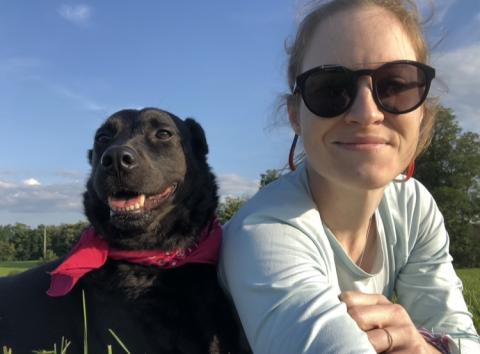
Dr. Nicolette Shelley
Shelley went on to achieve an undergraduate degree in animal science with a dairy focus, a master’s degree in teaching and then a doctorate. She’s worked in the emergency sector in New Hampshire and now lives in New Jersey where she works with small animals. Overall, Shelley cares most about the health and wellness of animals.
“There’s not one standard but there are things you can consistently do to make sure that the animal is safe, healthy and happy,” she says.
In reflecting on veterinary careers, Shelley admits that they are a very difficult and expensive path. “Perseverance, hard work, determination and consistency are the main traits that guided me through vet school. And grit.”
She found networking to be a critical part of her success and recommends for anyone interested in this line of work to get to know people in the industry.
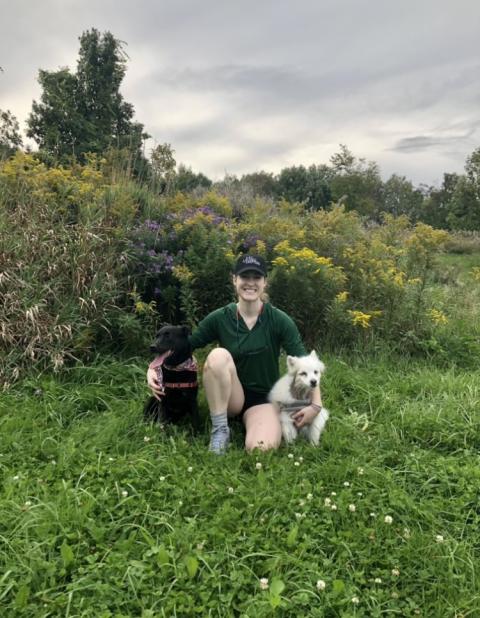
Dr. Nicolette Shelley
Kate Guerdat, 4-H and education program team leader, loves keeping in touch with 4-H alumni. “4-H teaches young people so many valuable skills that become essential for pursuing STEM careers, including in veterinary services. To see 4-H alumni like Megan and Nikki become successful doctors is a testament to the preparation that 4-H programs can provide, and it makes all of us in the 4-H community incredibly proud.”
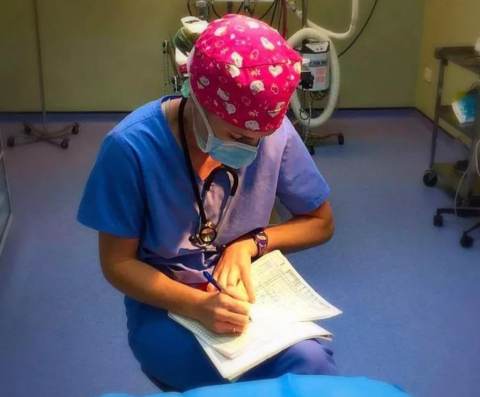
Dr. Nicolette Shelley

